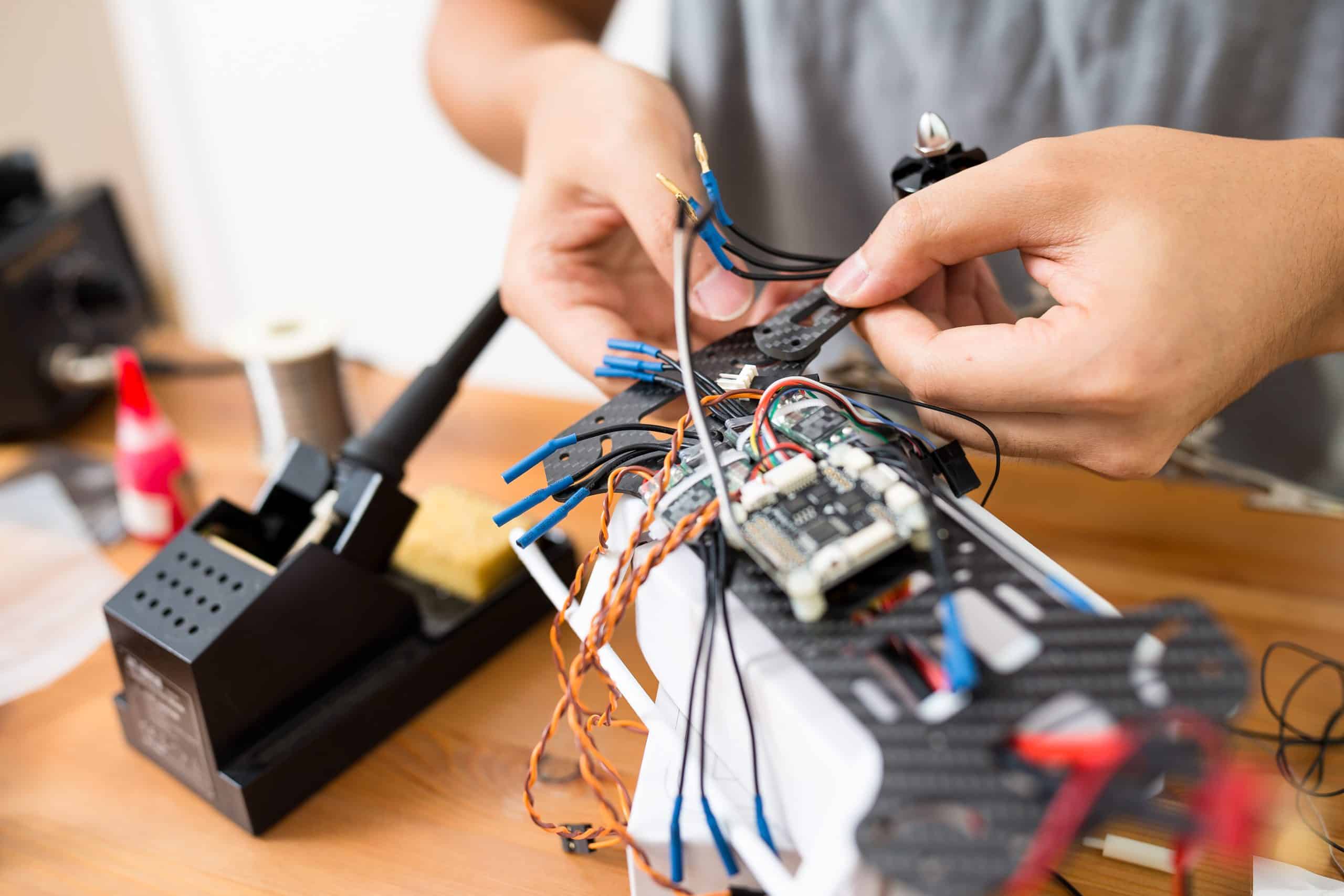Drones, those buzzing machines that hover above us to capture breathtaking aerial shots, are not just a part of some sci-fi movie anymore. They are right here, a part of our present times. But the story doesn’t end here; drones are poised to become an even more significant part of our lives. They are emerging as powerful tools for surveillance and security, both in public and private spaces.
The Rise of Drones in Surveillance
It’s only a matter of time before drones, or Unmanned Aerial Systems (UAS), become an integral part of our security infrastructure. The potential applications for drones in the field of surveillance are vast.
Drones, with their ability to easily access hard-to-reach areas, offer an efficient solution for monitoring large, complex environments. From tracking suspicious activity in public places to keeping an eye on the perimeter of private properties, drones are proving to be a boon for law enforcement agencies and private security sector alike.
Utilizing drone technology, police forces around the globe can monitor high-risk areas, manage crowd control, and swiftly respond to emergencies. Besides, private firms can use drones for various security purposes, such as monitoring the premises of factories, warehouses, and other vast spaces.
Apart from these, drones are also finding applications in tasks such as traffic management, event security, and wildlife protection. Their ability to capture high-resolution images and videos in real-time can assist in gathering vital data, which can aid in ensuring public safety and maintaining order.
Personal Security Drones: A New Dawn in Safety
Private drones for personal security are an emerging trend that’s gaining momentum. Such systems will be like personal bodyguards, monitoring and protecting their owners and their properties.
In the era where data is the new oil, drones can offer a wealth of information. Coupled with advanced data analysis techniques, such as AI and machine learning, drones can predict patterns, identify potential threats, and alert the users accordingly.
Imagine having a drone that will scan and patrol your property periodically or can be deployed at the push of a button when you hear an unsettling noise at night. Such a drone will not only provide you with a sense of safety but also bring you peace of mind.
Legal and Privacy Challenges
While the advantages of drones in surveillance and security are plentiful, they also bring about significant challenges pertaining to privacy and legal issues.
One of the major concerns is the violation of public privacy. Drones, due to their ability to discreetly hover and record data, can easily invade people’s private lives. This raises significant concerns about the potential misuse of drone technology.
Moreover, the law pertaining to drone usage is still in its nascent stage. The legal landscape for drones varies from one region to another, with many countries still struggling to formulate a comprehensive legal framework governing their use.
As drones become more prevalent, it is crucial to establish clear regulations that balance the benefits of drone technology with the need to protect individual privacy and uphold the rule of law.
The Road Ahead
The future of personal security drones in public and private spaces seems promising. With their potential to revolutionize surveillance and security practices, drones are set to play a vital role in our lives.
That being said, the road ahead is not without challenges. Striking a balance between maximizing the benefits of drone technology and safeguarding individual privacy will require careful thought and planning.
Furthermore, the public acceptance of drones for personal security will depend on how well these concerns are addressed. The technology, law, and public sentiment will all have to evolve together to create an environment where personal security drones can truly flourish.
In the end, it is undeniable that drones, with their revolutionary capabilities, are paving the way for a new epoch in surveillance and security. As we move forward, let’s ensure that this technology is used responsibly, maximizing its benefits while safeguarding our privacy and freedoms.
Evolving Laws and Acceptance of Drones
As drones evolve and become more prevalent in everyday life, legal regulations and public acceptance will need to keep pace. The benefits of drone technology are immense, but laws are required to address potential misuse and infringement on privacy rights.
In the United States, there is an ongoing debate regarding the Fourth Amendment, which protects citizens from unreasonable searches and seizures. Drones, with their ability to conduct aerial surveillance and data collection, could potentially challenge these rights. Law enforcement agencies are already using drones for search and rescue missions, monitoring public safety, and managing traffic flow. However, without clear legal guidelines, there is a risk of these unmanned aerial vehicles being misused.
Emerging technologies like drone delivery services further complicate the legal landscape. Current aviation laws do not adequately cover the unique challenges posed by drones. For instance, the low-altitude airspace that most drones operate in is not clearly defined in existing laws. Therefore, there is a pressing need for regulatory bodies to formulate comprehensive and adaptable laws that govern drone usage, while also protecting individual rights.
Public acceptance is another hurdle that needs to be crossed. There are concerns about the noise created by drones, potential accidents, and invasion of privacy. Building trust in drone technology is essential for its acceptance and adoption in society.
Conclusion: Navigating the Future of Personal Security Drones
The future of personal security drones hinges on the careful navigation of technological innovation, legal challenges, and public acceptance. The potential of drone surveillance is undeniable – from enhancing law enforcement capabilities to providing personal safety and security, drones equipped with advanced AI are set to transform the landscape of surveillance.
However, for these technologies to truly flourish, they need to be deployed responsibly. This includes ensuring that the use of drones respects individual privacy rights and aligns with the rule of law. The public needs to be assured that their safety is prioritized above all else and that measures are in place to prevent any misuse of this technology.
The United States, along with the rest of the world, must work to establish a legal framework that addresses all potential issues. This includes defining the airspace in which drones can operate, setting guidelines for data collection, and establishing accountability for potential misuse.
The road to the widespread use of personal security drones may be long and winding, but with careful planning and the right policies, we can ensure a future where drone technology enhances public safety and personal security, without compromising our freedoms. The future of personal security drones is bright – a future that promises real-time situational awareness, unprecedented surveillance capabilities, and a new level of safety and security.











